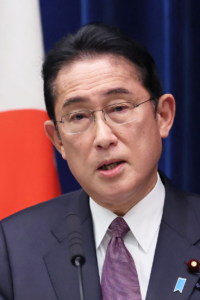
What will change with the revision of the three security documents? An expert in military history unravels their history and future. Chijiwa Yasuaki, Senior Fellow, National Institute for Defense Studies A revision that clarifies Japan’s own responsibilities Attempts at unilateral change of the status quo by force are gaining momentum in the Japanese periphery. The new “three security documents” approved by the Cabinet in December 2022 should be received with a sense of urgency and a recognition of the reality of the situation. The topmost of the three security documents is the National Security Strategy (NSS). In light of this, the “National Defense Strategy” (NDS) (the former “National Defense Program Guidelines” [NDPG]) defines defense goals and approaches as well as means to achieve them. Moreover, the “Defense Buildup Program” (the former “Medium Term Defense Program” [MTDP]) is a medium- to long-term buildup ... ... [Read more]

